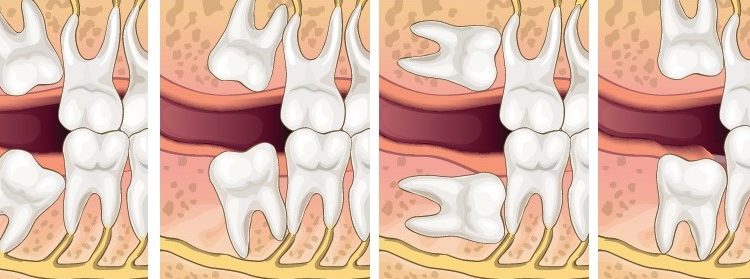
![]()
Winter. Holiday Season. Flu Season.
Winter is here! And with Thanksgiving just around the corner, the holiday season is officially upon us. But unfortunately, so is the flu season. While seasonal influenza (flu) viruses can be detected year-round in the United States, flu viruses are most common during the fall and winter. The exact timing and duration of each year’s flu season can vary, but influenza activity often begins to increase in October. Most of the time flu activity peaks between December and February, although activity can last as late as May.
We know it is tempting to stay in bed and dismiss your regular hygiene routine in order to get some rest when you’re sick. But proper oral hygiene during times of illness is actually quite important when you are sick. Not only will it help speed up the recovery process, it will contribute to the overall health of your teeth and gums. Here are some things to keep in mind:
- Drink plenty of water to keep your mouth hydrated, and try to keep your nasal passages clear. While ill, having a stuffy nose often causes us to breathe through our mouths. A dry mouth is at an increased risk for cavities.
- Certain medications may affect the health of your mouth. Some medications can cause symptoms like dry mouth or affect your ability to taste. Cough drops and liquid medicines often contain sugar for flavor. If possible, take medicine with a meal to reduce the sugar build-up on your teeth or rinse or brush after use. The best choice is to select sugar-free options as available.
- If you are unfortunate enough to catch a stomach flu or virus that causes vomiting, be sure to clean your teeth well since stomach acid can erode enamel (you’ll want to freshen and clean your mouth after such unpleasantness anyway!).
- Replace your toothbrush following a cold or bout of illness. Although some studies have shown that reinfection is unlikely, toothbrushes have been shown to grow and harbor bacteria…so better safe than sorry. If more than one toothbrush is stored in the same area, be sure they are separated to avoid spreading the virus to others.
- If necessary, over-the-counter biteguards can be replaced easily, but soaking biteguards or retainers in a strong antiseptic mouthwash is a good idea. Do not use hot water on them, as that may cause the plastic to soften and lose its shape. If you are concerned, you can also contact your dentist’s office to ask about ways they can to disinfect retainers or biteguards with cold sterilization.
Following these tips for oral health care when sick will help you emerge from your illness with healthier, cleaner teeth. If you have an appointment with McGann Facial Design, and on the day of your appointment you find that you are ill or have a fever, please contact our office to discuss possibly rescheduling.
We hope you stay well this cold and flu season (and all year-round). But if you do get sick, we hope you take care of yourself, recover quickly, and remember to take care of your smile too, you’ll need it when you’re feeling better.




